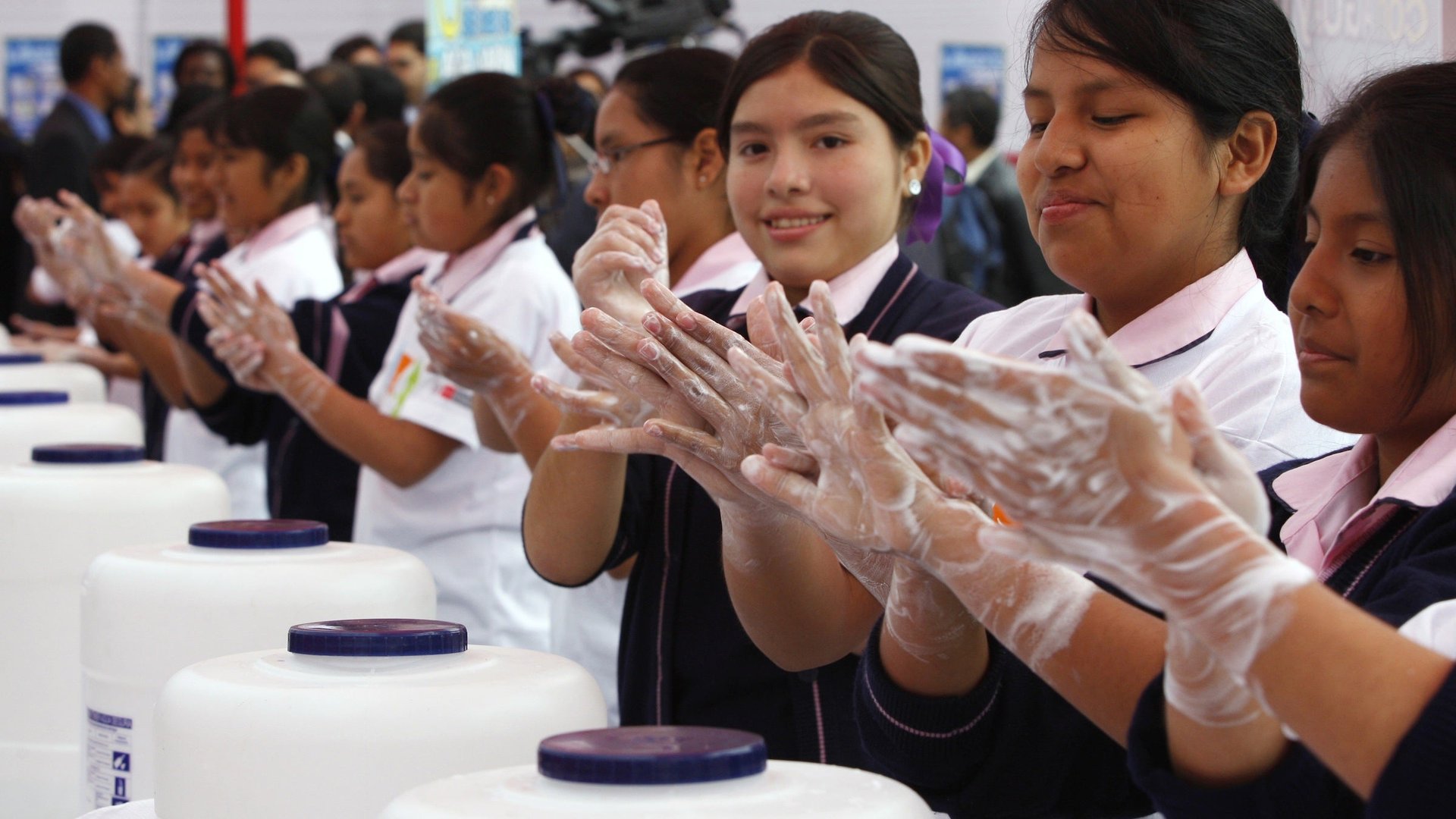Most people are kidding themselves when they wash their hands
Antimicrobial hygiene products are projected to make up a $1.4 billion industry in the US alone in 2014, with demand expected to rise 6% by 2017. But the US Food and Drug Administration (FDA) announced plans in December to review its regulation of such products, and a new research paper (pdf) says that they should indeed be more strictly regulated; they may not help to keep you healthy, and may even make you ill.


Antimicrobial hygiene products are projected to make up a $1.4 billion industry in the US alone in 2014, with demand expected to rise 6% by 2017. But the US Food and Drug Administration (FDA) announced plans in December to review its regulation of such products, and a new research paper (pdf) says that they should indeed be more strictly regulated; they may not help to keep you healthy, and may even make you ill.
The paper, by Rolf Halden, who heads the Center for Environmental Security at Arizona State University, is a summary of the evidence to date that antimicrobial soaps are ineffective or even harmful. Halden found in a previous study that the two most common chemicals in antimicrobial soap—triclocarban (TCC) and triclosan (TCS)—are more persistent than previously thought: While wastewater treatment removes 97% of TCC from sewage, most of that ends up in the sewage sludge that’s recycled into fertilizer, and shows up in plants. The TCC from three in every four bars of antimicrobial soap bought and used ends up in agricultural soil.
It’s not yet known if this is directly toxic to humans or the environment, but the FDA now agrees that more studies are needed—especially since there’s a risk that such soaps help breed antibiotic-resistant bacteria.
But antimicrobial soaps are also just a waste of money. They can cut infection risk when used in hospitals, but only because doctors and nurses know it takes 30 seconds to a minute of scrubbing. Most people, however, squirt the soap on, rub briefly, and rinse it off. In that case, the extra they probably paid for an antimicrobial instead of a regular soap just goes down the drain. So unless you’re doing a surgical scrub, it might be wiser to stick to regular soap—and tepid water—and try to spend a little longer at the sink, instead.